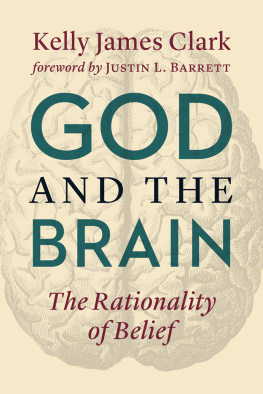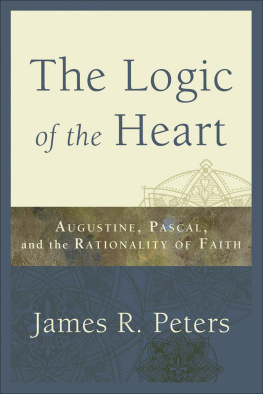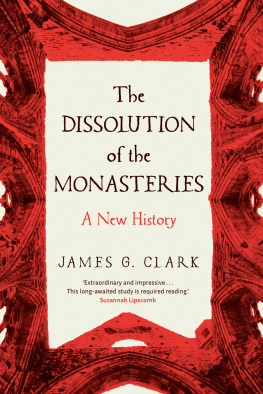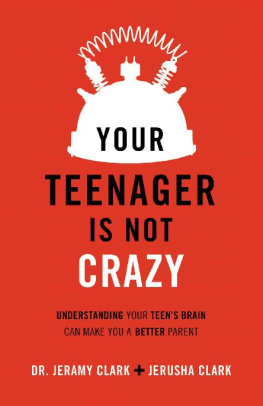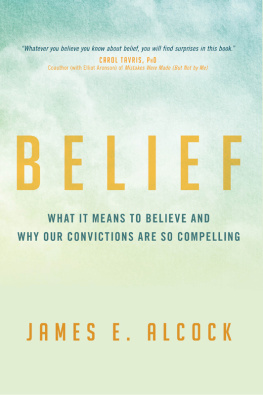Kelly James Clark - God and the Brain : The Rationality of Belief
Here you can read online Kelly James Clark - God and the Brain : The Rationality of Belief full text of the book (entire story) in english for free. Download pdf and epub, get meaning, cover and reviews about this ebook. year: 2019, publisher: Wm. B. Eerdmans Publishing, Co., genre: Religion. Description of the work, (preface) as well as reviews are available. Best literature library LitArk.com created for fans of good reading and offers a wide selection of genres:
Romance novel
Science fiction
Adventure
Detective
Science
History
Home and family
Prose
Art
Politics
Computer
Non-fiction
Religion
Business
Children
Humor
Choose a favorite category and find really read worthwhile books. Enjoy immersion in the world of imagination, feel the emotions of the characters or learn something new for yourself, make an fascinating discovery.
- Book:God and the Brain : The Rationality of Belief
- Author:
- Publisher:Wm. B. Eerdmans Publishing, Co.
- Genre:
- Year:2019
- Rating:5 / 5
- Favourites:Add to favourites
- Your mark:
- 100
- 1
- 2
- 3
- 4
- 5
God and the Brain : The Rationality of Belief: summary, description and annotation
We offer to read an annotation, description, summary or preface (depends on what the author of the book "God and the Brain : The Rationality of Belief" wrote himself). If you haven't found the necessary information about the book — write in the comments, we will try to find it.
God and the Brain : The Rationality of Belief — read online for free the complete book (whole text) full work
Below is the text of the book, divided by pages. System saving the place of the last page read, allows you to conveniently read the book "God and the Brain : The Rationality of Belief" online for free, without having to search again every time where you left off. Put a bookmark, and you can go to the page where you finished reading at any time.
Font size:
Interval:
Bookmark:

God and the Brain
The Rationality of Belief
Kelly James Clark
WILLIAM B. EERDMANS PUBLISHING COMPANY
GRAND RAPIDS, MICHIGAN
Wm. B. Eerdmans Publishing Co.
4035 Park East Court SE, Grand Rapids, Michigan 49546
www.eerdmans.com
2019 Kelly James Clark
All rights reserved
Published 2019
252423222120191234567
ISBN 978-0-8028-7691-1
eISBN 978-1-4674-5655-5
Library of Congress Cataloging-in-Publication Data
A catalog record for this book is available from the Library of Congress.
To my aunts and uncles:
Karen and Kenny Severson,
Ginny and Jim Kelham,
and Tom and Leslie Leech
Contents
I have a two-and-a-half-year-old friend who has recently discovered monsters in his bedroom. By normal indicators, he has a belief in monsters: in garbled English he can articulate that the monsters are there, he shows emotional signs of genuine fear (and says, I scary, meaning that he is scared), and he modifies his actions based upon these beliefs. We could easily conclude that this little boy has an irrational belief in monstersbut is it irrational? Just because a belief is false does not mean that the belief is irrational. People can sensibly and rationally form beliefs that turn out to be false. Furthermore, do we even know that there are not monsters in his bedroom? Children of his age have many abilities that adults have lost, including the ability to perceive subtle differences in sounds. Maybe preschoolers are also better at monster perception (I hope not). Deciding whether someone elses beliefs are rationally or justifiably formed is no easy businessthough its often tempting to proceed as though it isand perhaps even more so when the beliefs in question dont match our own.
In todays climate, large and diverse batches of information on peoples thoughts, values, and commitments from all over the world are readily available through electronic and print media. This level of accessibility makes two mistakes common when evaluating whether someones beliefs are virtuously formed and held. The first mistake is to assume that the others beliefs (such as their religious or moral beliefs) should be mistrusted because of tribalistic sentimentfor example, those other people havent been as careful as I have in forming my beliefs. In this line of thinking, my beliefs are thoughtfully and carefully formed through rational reflection and the reliance on good evidence and sound arguments, and they are backed up by the authority of qualified experts; their beliefs are hastily produced through dubious methods. The second mistake is to conclude that the vast diversity in beliefsabout, for instance, whether there are spirits, whether humans have immaterial souls, whether some objects are really sacred, and whether there is a cosmic creator Godimplies that no ones beliefs are any better than anyone elses. Who am I to say that my beliefs have been more appropriately formed than anyone elses? The humility in that sentiment is valuable, but its erroneous to conclude that, on the basis of the vast diversity of beliefs, we cant really know anything or at least be justified in claiming we know it. Both of these mistakes arise from failing to know how beliefs are formed and why it matters.
Enter science.
Ever since psychology began getting its scientific legs beneath it in the late nineteenth century, it has dabbled with trying to account for religious beliefs. The past twenty years, however, have seen an unprecedented blossoming of scientific attempts to explain religious beliefs. Where do they come from? What causes them? Unsurprisingly, such investigations have been quickly followed by asking whether these causal explanations bear on whether religious beliefs are true or false, rational or irrational. Neuroscience, as well as cognitive, developmental, evolutionary, and social psychology, have matured enough in their theories and methods to begin making real headway concerning how beliefs are formed, and this progress has been turned to studying the causes of religious beliefs. Most prominent in these efforts is the interdisciplinary space known as cognitive science of religion, which is the main focus of this book. As in times past, these scientific treatments of religious beliefs have been quickly followed by philosophical treatments concerning what the science means for whether religious beliefs are good or bad, justified or not, rational or irrational. As a philosopher of religion with a gift for making complex ideas and arguments accessible, Kelly Clark has been among the leaders of this philosophical engagement with cognitive science of religion.
Dr. Clarks interest in the area began in the late 1990s when I first became a psychology professor at Calvin College, where he was teaching philosophy. I gave a seminar to my Calvin colleagues, presenting scientific research that would later be known as cognitive science of religion, and Dr. Clark was the only non-psychologist in attendance. When I finished, Dr. Clark made a point of coming over and paying me what I choose to take as a compliment: Gee, I didnt think you could do anything interesting with psychology. And now here we are a few years later with an entire book on the subject.
Dr. Clark has chosen to write a book that falls at the intersection of philosophy, religious studies, theology, and several scientific disciplines. Doing so is no easy feat, and even in the hands of a communicator as gifted as Dr. Clark, understanding what is at stake is not straightforward. To help a bit, I offer a few distinctions.
First, causes are not reasons. In common talk, we may answer the question, Why do you think that? by reference to the reasons for belieffor example, I believe the economy is shaky because of labor-force participation data, or I think we have enough potatoes for dinner because I counted them and checked the recipe. Reasoning is the process of connecting impressions, feelings, and thoughts to other thoughts. Causes, on the other hand, refer to the mechanisms of belief formation. What are the social dynamics, the psychological processes, the brain states, or the chemical processes that make a belief more likely to come about? An example of this connection might be I believe a ball is in front of me because light waves reflected off the ball into my eye, causing activation in my retina, which sent a signal to my brain that was processed as indicating an object resembling a ball. But what about a statement like You believe the Beatles are greater than Drake because you are old? Traditionally in logic, taking the causes for beliefs as invalidating the beliefs is considered a fallacy. Just because your belief is caused in some part by your age group, for instance, does not mean the belief is faulty. Likewise, simply discovering a cause for religious beliefs does not invalidate that religious belief. All beliefs have causes of one sort or another, and the sciences that study belief formation, including cognitive science of religion, are in the business of uncovering these causes. Whether these causes do indeed upset the reasons for belief in some cases is the central question of Dr. Clarks book.
Second, in terms of scientific inquiry and explanation, minds are not brains. Brains, along with the rest of the nervous system, are very important in generating mental states such as thoughts, feelings, and experiences; thus the brain sciences and mind sciences are closely related and even overlap (as in the fields of cognitive neuroscience and neuropsychology). Nevertheless, when it comes to understanding religious or any other sort of beliefs, it is the mind and mental processes that matter more immediately than brains and neural dynamics. Beliefs are mind things; neural activation patterns are brain things. The difference is akin to the difference between learning how a computer works on the level of operating systems (e.g., How do I get this thing to print my document? How do I save this file in another format?) and learning how a computer works at the level of microprocessors and circuit boards (e.g., Why doesnt the sound work anymore? Why is this computer so much faster than that one?).
Font size:
Interval:
Bookmark:
Similar books «God and the Brain : The Rationality of Belief»
Look at similar books to God and the Brain : The Rationality of Belief. We have selected literature similar in name and meaning in the hope of providing readers with more options to find new, interesting, not yet read works.
Discussion, reviews of the book God and the Brain : The Rationality of Belief and just readers' own opinions. Leave your comments, write what you think about the work, its meaning or the main characters. Specify what exactly you liked and what you didn't like, and why you think so.

